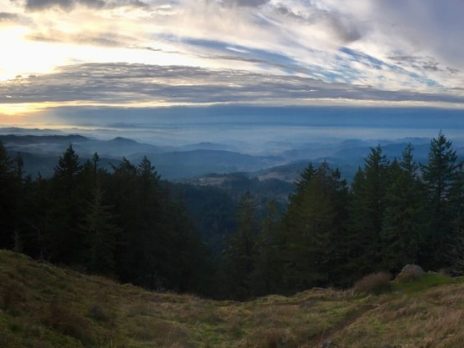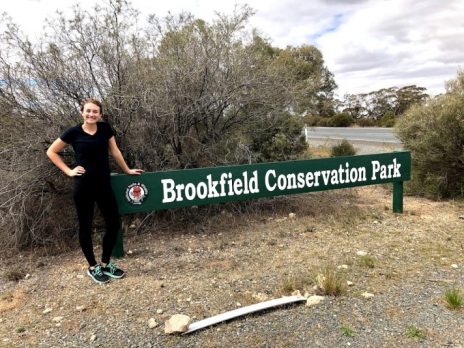Due to their disproportionately high levels of endemism – having species found nowhere else in the world – island ecosystems often represent regions of both high conservation value and concern. As bodies of water acts as barriers-to-entry for flightless colonizers, most oceanic islands are exceptionally lacking in mammalian species, particularly carnivores. During my RCN lab exchange, I visited Santa Cruz Island (SCI), the largest of the Channel Island archipelago, which is unique in that it supports two endemic carnivore… Read more
Lab Exchange
Justine Hudson’s Lab Exchange at Northern Arizona University
At the end of January, Winnipeg was under an extreme cold warning with temperatures dipping to -47°C with the wind-chill. I was ecstatic to escape the bitter cold and travel to warm, sunny, Arizona. Stepping off the plane in Phoenix was like heaven, a mere 13°C felt like beach weather. The trip from Phoenix to Flagstaff was beautiful. Seeing cacti as the sun went down over the mountains was everything that I imagined Arizona to be. By the time… Read more
Renee Jordan’s Lab Exchange at University of Oregon
I am privileged to have had the opportunity to participate in an exchange with Dr. John Postlethwait’s lab! My time spent learning new techniques, attending talks, and fighting with pipettes opened my eyes to a whole new world (Disney pun intended).

The Facts
Who? Me! Renee Jordan, PhD Student at Northern Arizona University
What? RCN g2p2pop laboratory exchange
When? December 2nd – 15th, 2018
Where? University of Oregon,… Read more
Nicholas Per Huffeldt’s Lab Exchange at Nagoya University in Nagoya, Japan
To approach ecological questions regarding persistence of species, understanding constraints imposed by the current physiology of a species is an important piece to the evolutionary puzzle, and, being an ecologist by training, my molecular skills to investigate physiological mechanisms were limited. It was under this premise that I applied for support from the g2p2pop RCN to support a Laboratory Exchange in Prof. Takashi Yoshimura’s lab in the Institute for Transformative Biomolecules at Nagoya University, Japan. My objective for the… Read more
Jordyn Upton’s Lab Exchange at Brookfield Conservation Park in South Australia

The southern hairy-nosed wombat is a keystone species, South Australia’s faunal emblem, and was listed as Near-Threatened in 2016 (IUCN Red List). Because of this new listing, Dr. Faith Walker, my Primary Investigator (PI) at Northern Arizona University (NAU), renewed her interest in the burrowing marsupial. In 2017, she and a field team headed to Brookfield Conservation Park (BCP)… Read more
Alejandro Fernandez Ajó’s Lab Exchange at Oregon State University
From July 26 to August I participated in a Laboratory exchange at the Geospatial Ecology of Marine Megafauna Laboratory (GEMM Lab) at Oregon State University at the Hatfield Marine Science Center (HMSC), Newport-OR. I was hosted by principal investigator (PI) Dr. Leigh Torres with the two main objectives of 1) collaborating and learning non-invasive fieldwork techniques for studying free-range whales and 2) interacting with, exchanging ideas, and networking with the GEMM Lab members. PhD candidate Leila Lemos lead… Read more